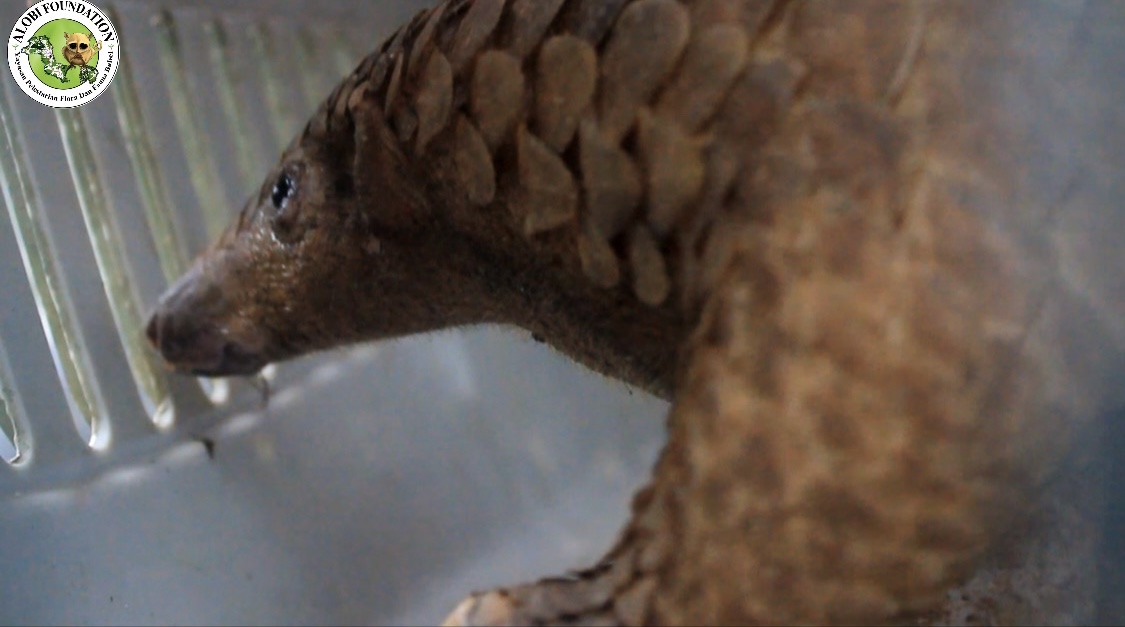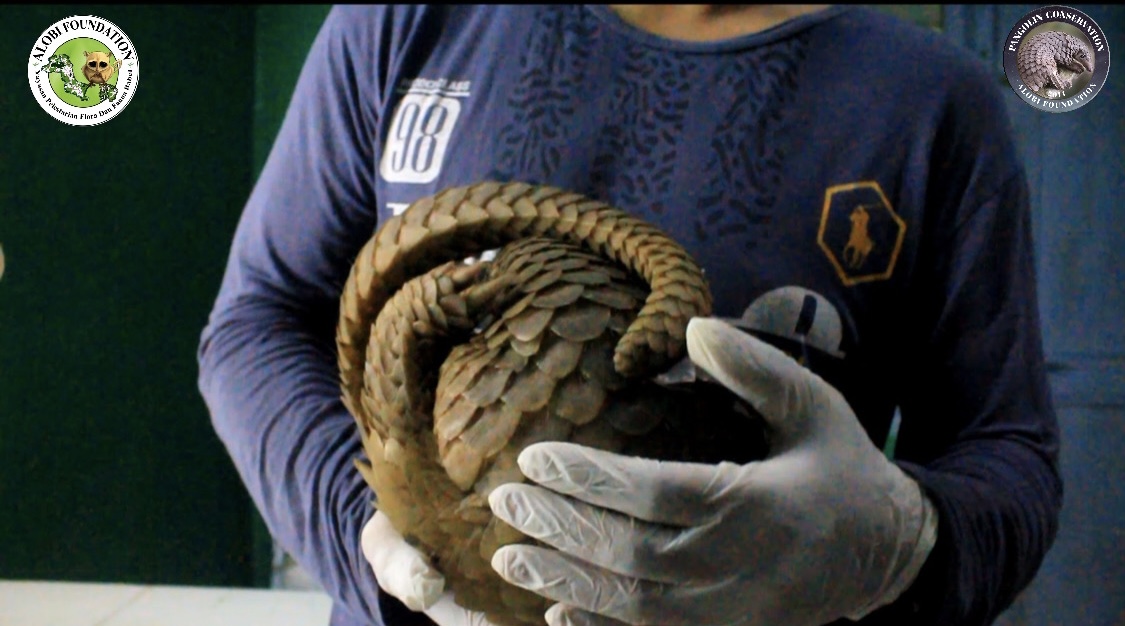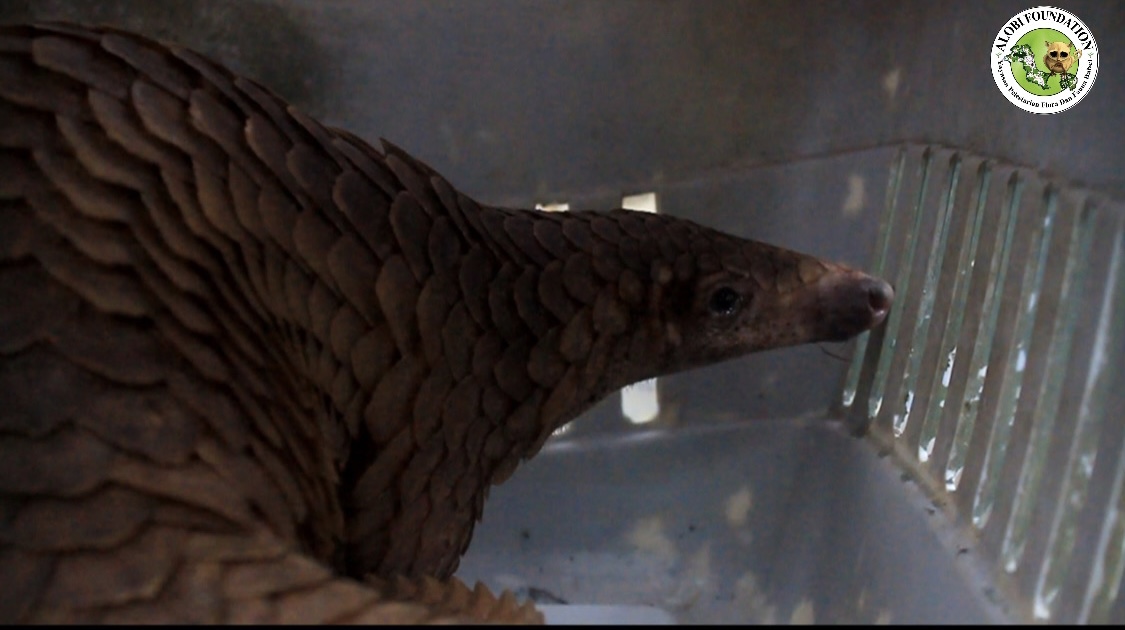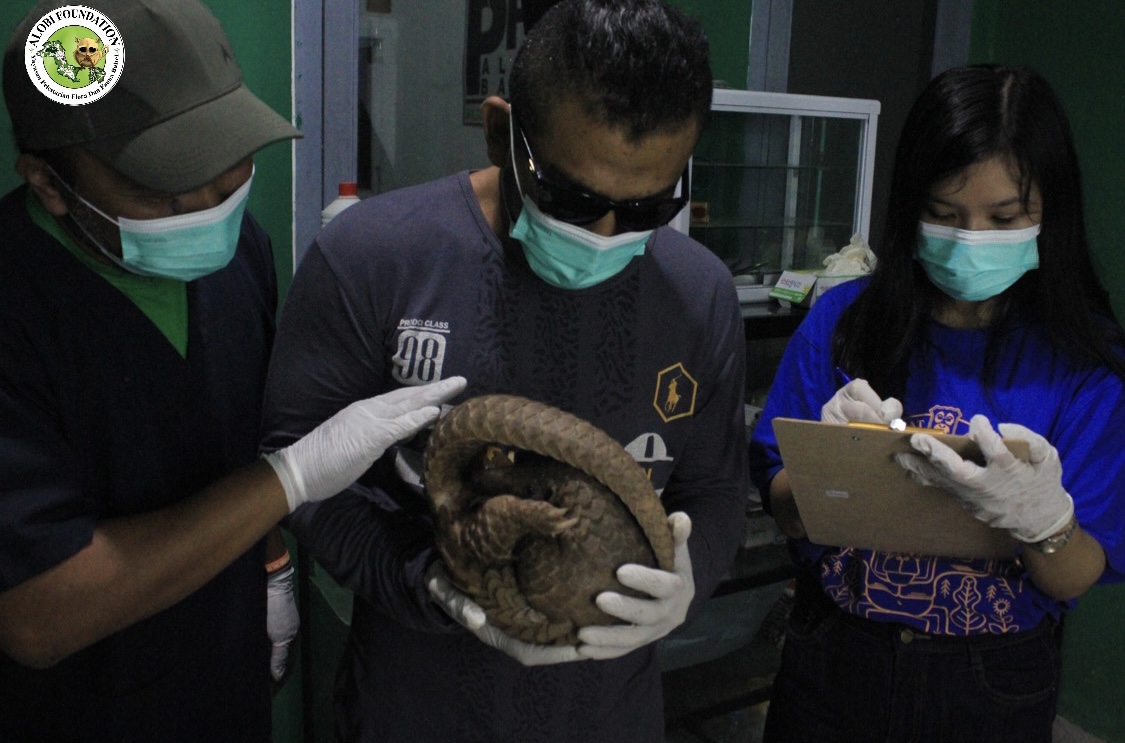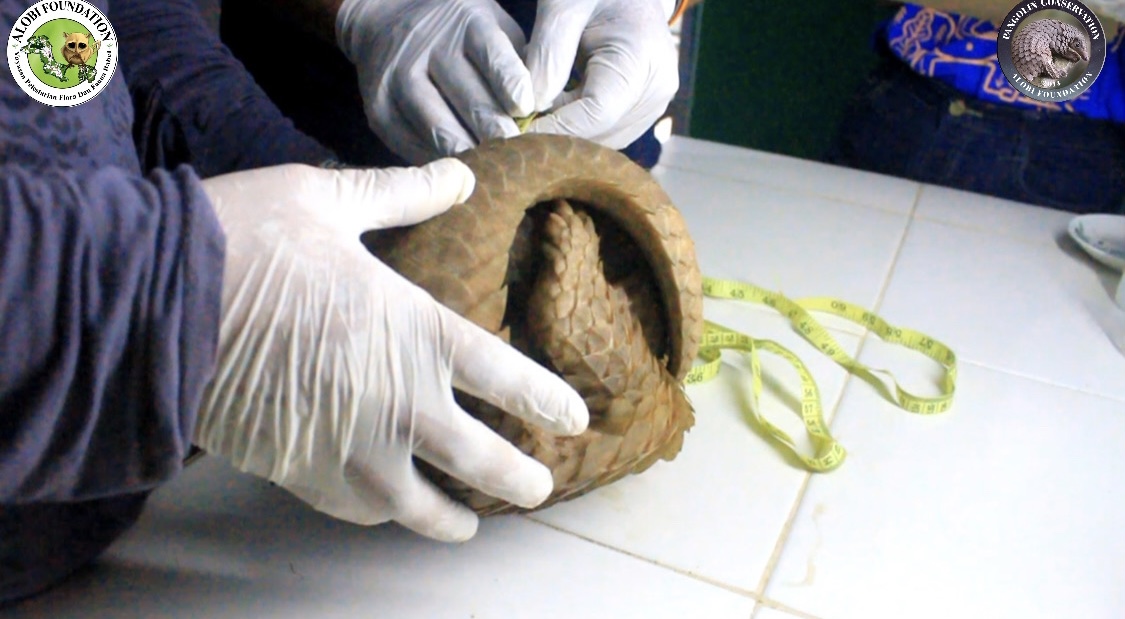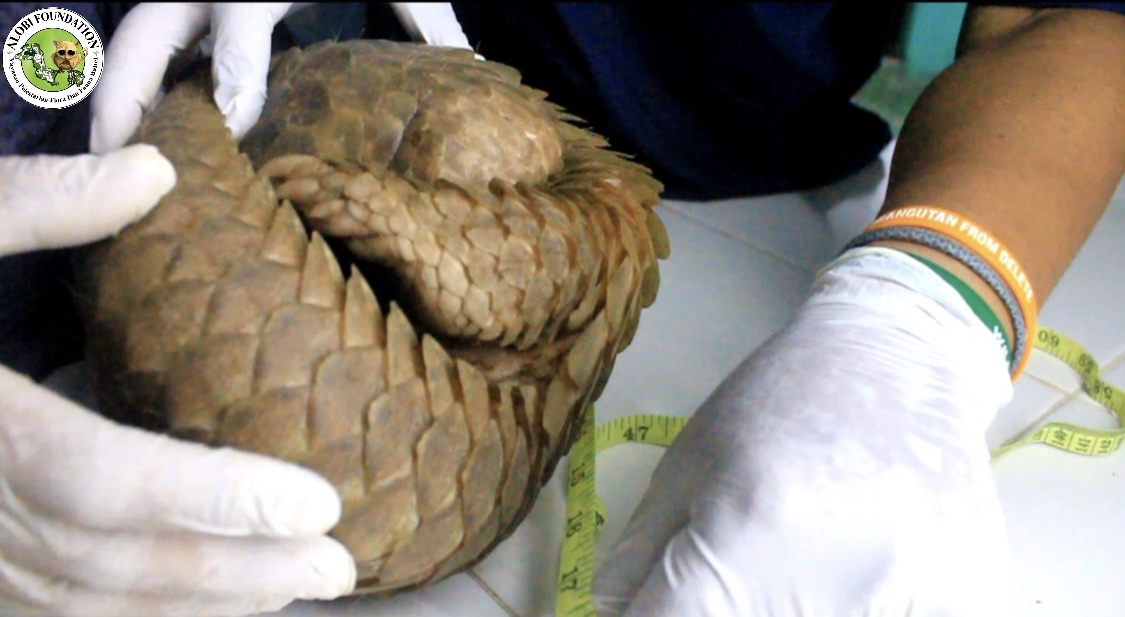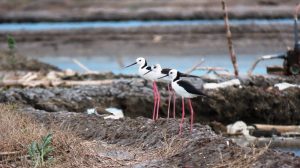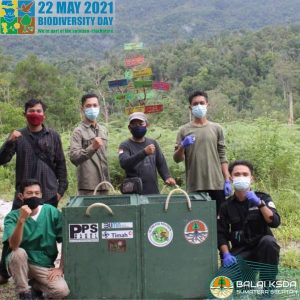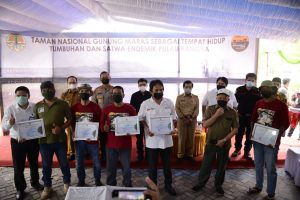On Tuesday morning, at 02.30 a.m, April 4, 2023, Alobi Foundation received a report that a sunda pangolin had entered a resident’s house. Alobi Foundation Rescue Team, assisted by KSDA students at Bangka Belitung Muhamadiyah University, went straight to the location to evacuate the sunda pangolin.
The sunda pangolin that was successfully evacuated, has the Latin name Manis javanica. This species is a unique scaly mammal from the Pholidota family. The scales on the pangolin function as a means of protection from the prey, but are currently threatened because they are the target of poaching and bring them into critical status. The sunda pangolins are included in the Critically Endangered category by the IUCN Red List of Threatened Species in 2019. Sunda pangolins are also listed in Appendix I of CITES (Convention on International Trade in Endangered Species of Wild Fauna and Flora), which means that all trade towards this species is strictly prohibited. In Indonesia, according to Minister of Environment and Forestry Regulation Number 106 of 2018, sunda pangolins are a protected species, and according to Law Number 5 of 1990 concerning the Conservation of Living Natural Resources and their Ecosystems, it is prohibited for anyone to catch, injure, kill, store, possess, maintain, transporting and trading protected animals either alive or dead or in the form of body parts, eggs and destroying their nests.
The condition of the preservation of the sunda pangolin population in nature is very worrying and is threatened with extinction. This is due to increased habitat and ecosystem damage due to illegal mining and area conversion. In addition, the increasing rampant poaching and trade in wildlife poses a serious threat to sunda pangolins because this species is the most trafficked animal in the world. According to National Geographic, sunda pangolins are poached and traded illegally for their scales. The sunda pangolin scales are made of keratin, the same substance that makes up human fingernails and hair, or in rhino horn. Therefore, concrete steps are needed to save and preserve and conserve this species.
The sunda pangolins that had been evacuated by Alobi Foundation Team were immediately taken to Alobi Foundation Wildlife Rescue Center, Kampoeng Reklamasi Timah Air Jangkang for a medical check-up at the Alobi Clinic. An examination was done to see the overall health condition of the sunda pangolin. Examinations carried out included a physical examination (respiratory system, digestion, extremities) and a laboratory examination (feces). If the results of the medical examination show that the results are not good, then intensive medical treatment will be taken. However, if the results of the health check show good results, then the pangolins will be returned to their habitat together with the South Sumatra BKSDA (Wildlife Department). This is important because the existence of these animals has an important role in maintaining the balance of nature and ecosystems. The existence of this pangolin is very important, especially because of its role in controlling termite and ant populations in the forest.
Returning the sunda pangolin to their habitat is one of Alobi Foundation’s efforts to help preserve forests as animal habitats and support conservation activities.
Alobi Foundation hopes that all elements of society around the world can participate in preserving animals by not catching and hunting wild animals, not destroying forests as animal habitats, not keeping wild animals as pets, and most importantly supporting conservation activities.
Greetings Conservation!
Save Wildlife!
Writer : Trisna Rizky Martiyani, Guruh Jaya Wisnuwardana, Langka Sani
Source : IUCN Red List

